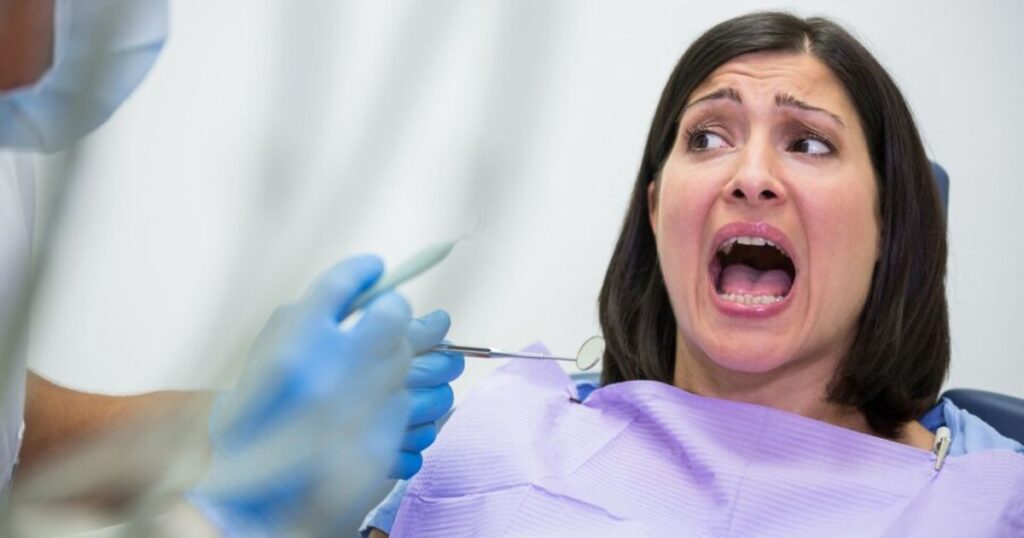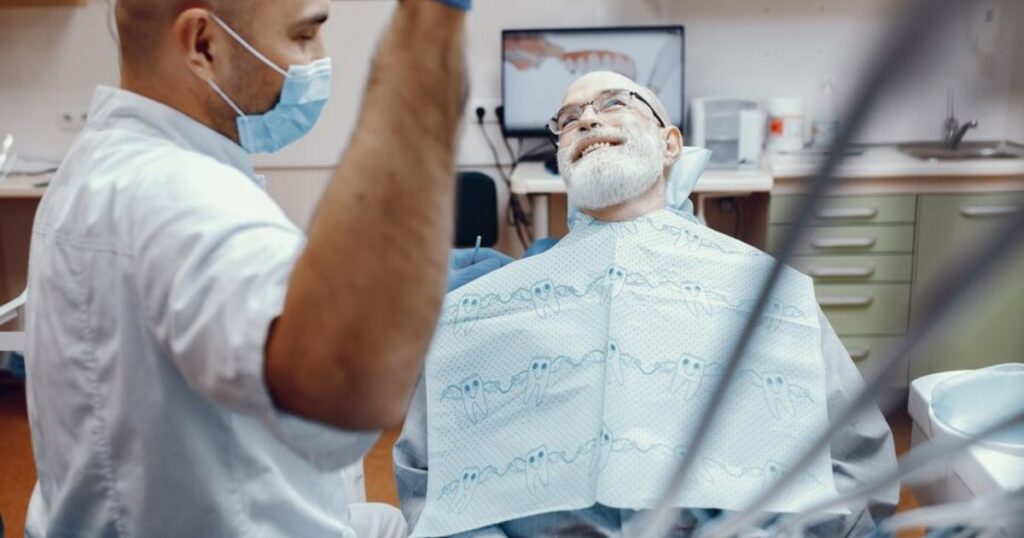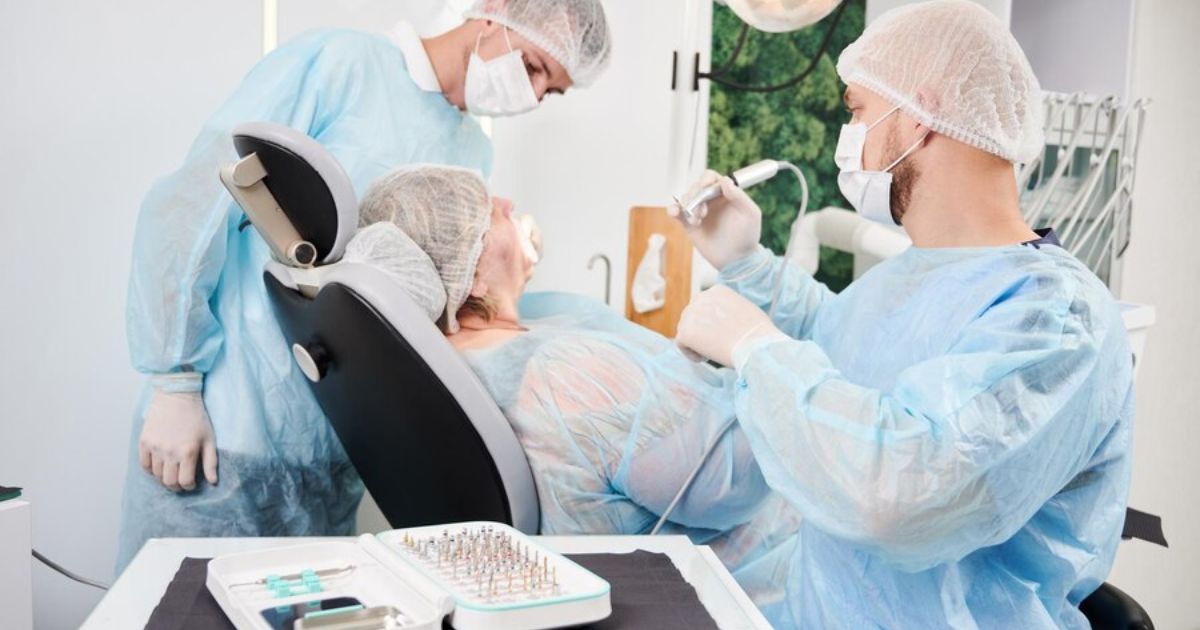Over 60 million senior citizens and younger disabled Americans rely on Medicare as their primary health insurance. But when it comes to extensive dental work like getting dentures, what exactly does Medicare cover and not cover?
Unfortunately for many who need false teeth, the answer is complicated. Standard Medicare does not include routine dental care like dentures except in rare circumstances.
However, options exist apart from Medicare to get full or partial dentures affordably through dental schools, clinics, payment plans, and public assistance programs. Let’s explore Medicare’s exclusions, special cases for coverage, and how to access low-cost dentures even without insurance.
What Does Medicare Cover?
Before analyzing dentures specifically, it helps to understand what medical services Medicare does cover. Medicare Part A (Hospital Insurance) covers inpatient care in hospitals, skilled nursing facilities, hospice and home health care.
Part B (Medical Insurance) covers doctor’s services, outpatient care, preventive screenings, lab tests, medical equipment like wheelchairs and walkers, and ambulance transportation.
Medicare Advantage Plans (Part C) offer bundled medical and prescription drug coverage through private insurers that must cover everything provided in Parts A and B. Many also offer extra benefits like vision, hearing, dental or wellness programs.
So in a basic sense, Medicare provides comprehensive health insurance for hospital stays through to outpatient services required to diagnose and treat illnesses or injuries. But it stops short of covering preventive dental cleanings or restorative treatments to improve oral health if no related medical issue exists.
What Dental Care Does Medicare Not Cover?

Medicare does not cover routine dental care and services including:
- Teeth cleanings, fillings, tooth extractions, denture adjustments
- Dental plates, bridges, dental implants, caps, crowns
- Treatment for dental diseases such as gingivitis, periodontitis
- Cosmetic dentistry procedures
- Oral examinations, dental X-rays
This exclusion also applies even if poor oral health negatively impacts a person’s overall health and wellbeing. For example, Medicare would not cover tooth extractions or dentures due to severe gum disease or infection resulting from lack of dental care.
These broad exclusions place dental treatment costs fully on the recipient, unless offered under select Medicare Advantage policies or accessed through other state Medicaid programs or low-income assistance grants.
When Could Medicare Potentially Cover Dentures?
There are a handful of scenarios where Medicare provides at least partial coverage for tooth extractions and dentures:
Certain covered medical treatments – If dental procedures like extractions are required before a major covered surgery like heart valve replacement or organ transplant, Medicare would cover the preparatory dental work. For example, clearing infection through tooth removal before a kidney transplant.
Medicare may also cover dentures in this situation if inability to properly chew food would seriously compromise recovery after surgery. The dental care links directly to the outcomes of the covered medical care.
After injury requiring oral surgery – Medicare would cover emergency dental treatment needed to stabilize bones, the jaw, or facial structures after an accident. If teeth had to be removed due to injury rather than disease, it may also cover dentures or braces if oral function restoration aided the overall accident recovery process.
Certain medical conditions requiring extractions – If ALL teeth need removal due to a medical issue like oral cancer or osteonecrosis of the jaw prior to radiation, Medicare could cover this procedure. But routine dental extractions for non-medical reasons would not qualify.
Immediate complete dentures – These are placed immediately after full mouth extractions, before gums heal. In above scenarios for injury, cancer, etc. where Medicare covers the extractions procedure, reimbursement may also apply for same-day dentures only if medical justification exists on the benefits certifications.
Medicare Advantage dental benefits – A minority percentage of Medicare Advantage plans include preventative dental coverage, with only around 7% offering comprehensive dental coverage options as of 2022 data. This varies widely by state and insurer, so compare options carefully during open enrollment.
Strategies for Affording Dentures Without Insurance

The reality is while limited cases exist for Medicare to cover costs associated with dentures, for a majority needing false teeth the expenses remain prohibitive without further assistance. What alternatives help bridge the gap if you cannot swing $1,800 – $6,000 or more for full or partial dentures on your own?
Utilize sliding-scale dental clinics – Non-profit dental clinics provide teeth cleanings, extractions, dentures and other care at significantly reduced rates based on your ability to pay. Some clinics offer services free to qualifying low-income patients. Finding an affordable community health clinic near you is key.
Leverage dental schools – Getting dentures made at a dental school with students under instructor supervision can make a dramatic difference, with costs averaging 30-60% less than private practice rates. For example, $500-$2000 compared to $3000+ in some areas. The tradeoff is longer appointments as students learn.
Explore 0% financing payment plans – More dental providers offer no-interest or low-interest monthly payment plans allowing you to spread procedural costs out over 6 months to 2+ years. This makes treatment affordable in incremental payments. Just be sure to compare terms across dental offices.
Check if you qualify for Medicaid benefits – In some situations and states, Medicaid offers dental coverage to seniors 65+ as well as low-income or disabled persons that could include full/partial dentures. Eligibility and coverage varies widely so double check resources in your area.
Utilize Dental Savings Plans – Privately insured dental savings plans provide 10-60% discounts on procedures at contracted dentists. Often $80-$150 per year, they are not insurance but rather discounted service rates helping cut routine and major dental costs.
Research medical trials – Watch medical research listing services for clinical trials related to dental surgery, implants, dentures, and materials testing that may offer free or heavily subsidized treatment in exchange for participation and feedback.
Finding ways to invest in oral health through restorative treatment including dentures greatly impacts seniors’ nutrition, speech, self-confidence, and ultimately quality of life. Evaluate all options and budget carefully, as combining a few discounted resources and payment plans goes a long way towards affording this critical age-related treatment.
Average Costs Nationwide for Dentures Treatment

To set realistic expectations around costs, according to 2022 data from both the American Dental Association and Consumer Guide to Dentistry, average ranges to expect for full or partial denture treatment include:
- Basic Complete Dentures (full upper and lower) – $3400 total ($1150-$6000 nationwide)
- Full upper or lower Dentures only – $1850 ($350-$3000 nationwide)
- Partial Dentures (with some natural teeth remaining) – $1450 ($500-$4000 nationwide)
Many factors influence final costs including needed extractions, type of materials used, single vs dual pieces, and specialist vs general dentist. Additional costs also accrue for multiple fittings, adjustments over 5+ years, repairs, relines, temporary hardware, and replacements needed as mouth anatomy changes.
As a benchmark, those prices reflect final single-arch, basic acrylic resin dentures with 3 fittings and 3 adjustments done within 12 months after extractions healing. Costs climb higher for specialized or flexible partials and full denture solutions utilizing advanced materials.
Does Medicare Cover Any Dentures Situations?
In summary, except for limited extenuating medical circumstances related to an already covered surgery, injury or cancer treatment:
- Standard Medicare does NOT cover routine dental care costs or preparatory procedures associated with dentures (partial or complete sets)
- Medicare also does NOT cover dental examinations, X-rays, extractions, crowns, implants, or other restoration work done to install, adjust or customize dentures
FAQ’s
Does Medicare supplement cover dental?
No, Medicare supplement plans do not cover dental care. Medicare supplements only cover health costs not covered by regular Medicare. You need a separate dental plan or dental insurance for coverage of dental services.
Which type of dental benefit plan is most common today?
The most common type of dental benefit plan today is one offered through an employer. Many companies provide dental insurance to their employees as part of their benefits package. These group dental plans are inexpensive compared to individual dental insurance policies.
Who has the best dental insurance?
Many experts say that larger insurance companies like Delta Dental and MetLife have great dental insurance options. They have large networks of dentists to choose from. They also tend to have lower monthly premiums than smaller companies. However, the best dental insurance ultimately depends on individual needs and budget.
How much do most people pay for dental insurance?
Typically, people pay somewhere between $20-$50 per month for an individual dental insurance plan. Family dental insurance often costs $50-$150 monthly. The exact price varies greatly depending on the coverage level, deductibles, and insurance provider selected. Many employers help cover part of the monthly cost for workers.
Conclusion
Instead, alternative paths to affordable false teeth do exist through discounted dental clinics, university dental programs, financing arrangements, and other assistance resources.
Hopefully this gives Medicare enrollees needing dentures a clearer picture of typical out-of-pocket expenses involved, cases where coverage could occur, and ideas to obtain dental treatment more affordably even without comprehensive insurance.
As always, thoroughly discuss specifics of your unique medical situation with licensed providers when developing coordinated treatment plans across both healthcare fronts. Planning appropriately helps minimize surprise costs when combining these frequently interrelated dental and medical services.
Medicare does not cover routine dental care including dentures, but limited exceptions exist when medically necessary for a covered surgery, injury, or condition. Alternatives like dental schools, clinics, payment plans can reduce out-of-pocket denture expenses.











